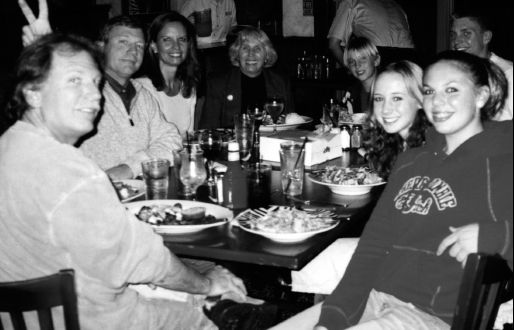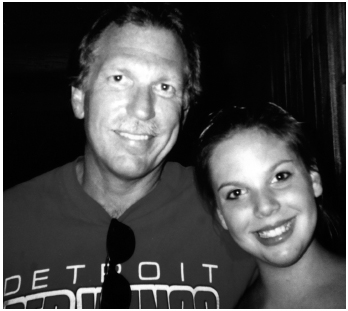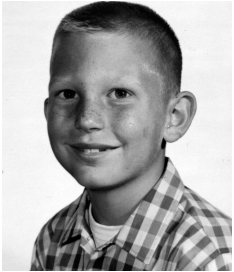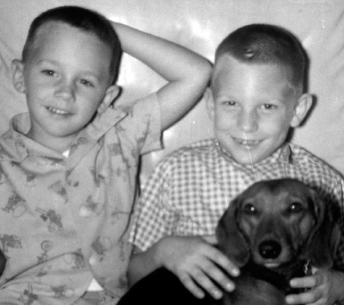Kill the Messenger (15 page)
Read Kill the Messenger Online
Authors: Nick Schou

“I didn't think the commission was a particularly good idea,” says Sanho Tree, an IPS drug policy expert who had been brought to the project by former freelance journalist Martha Honey. “The issue had already gotten out of control thanks to the nutters on the extremes. The story had become radioactive,” says Tree. “I would talk to activists in South Central who were thoroughly indoctrinated by Ruppert. They told me that not a rock of crack cocaine was sold in L.A. without the CIA's permission. I told them people in Langley didn't know where South Central was, and they were trying to fund an illegal war, not trying to start the crack-cocaine epidemic.”
Besides Ruppert, countless people of all political stripes came forward in the wake of “Dark Alliance” to use Webb's story to bolster their long-held suspicion that the CIA was secretly pulling the strings of world events. “Dark Alliance” had the uncanny effect of uniting conspiracy theorists on both ends of the political spectrum. In a way never seen before or since, it created an alliance of wild-eyed, would-be revolutionaries on the left who believed the CIA had deliberately started the crack epidemic to commit genocide against black people, and right-wing followers of Lyndon LaRouche, who saw the story as further proof that George Bush, Sr. and the Queen of England belong to a secret cabal that controls the planet.
“Ruppert and the LaRouchians were responsible more than anyone for Webb's downfall,” says Tree, adding that the Citizen Truth Commission ultimately focused less on arguing over how much further Webb should have gone with “Dark Alliance” than in examining the inequities of the war on drugs. Meanwhile, Ruppert used the story as a launching pad for his online newsletter,
From the Wilderness
, which he has used to publicize various conspiracy theories.
Reached by telephone at the
From the Wilderness
office in Ashland, Oregon, Ruppert claimed someone had just smashed every computer terminal in his office. “It was an organized job,” he said. He speculated that the vandalism either involved his efforts to expose government wrongdoing or a disgruntled former employee with ties to a local drug ring. He recently published a book about 9/11,
Crossing the Rubicon
, copies of which he brought to Webb's funeral. He credits “Dark Alliance” with not only jump-starting his publishing career but saving his life.
“I was going to commit suicide the week those stories broke,” he says. “I had been trying for eighteen years at that point to expose CIA drug trafficking. I was living in this ramshackle place in Sylmar when I turned on the radio and heard about this major story in the
San Jose Mercury News
tying the CIA to cocaine shipments, and I ran out to get the paper. It kept me going. Somebody else had shown up and done the same work, and now there was credible evidence.”
Ruppert chafes at those who call him a conspiracy theorist. “I come from a CIA family,” he says. “The CIA tried to recruit me twice, when I was at UCLA and again through [my girlfriend] when I was at the LAPD.” He claims IPS betrayed the groundswell of public demands for justice that arose in the wake of Webb's reporting. “They ignored me completely,” he says. “I considered IPS to be a gatekeeping organization that was there to do damage control, and that's exactly what they did.”
While Ruppert's sincerity as a whistleblower is something only he can address, his outburst at Locke High School and later, his self-promoting defense of Webb, didn't exactly help build credibility for “Dark Alliance.”
F
EW PEOPLE WERE
more passionate about “Dark Alliance” than Joe Madison, “The Black Eagle,” a radio talk-show host based in Washington, D.C., who now broadcasts on XM satellite radio. In a recent interview, Madison acknowledged that many African Americans, including some of his friends, took Webb's story further than the facts allowed, and that Webb had often chastised him when he inadvertently
mischaracterized elements of the story. He says he became obsessed with “Dark Alliance” because it was the first time a mainstream American newspaper had taken a serious look at U.S. government complicity in the crack plague.
“In the black community, we always had suspicions,” Madison says. “The old adage was that we don't grow cocaine. How could so much of it get into the country without the government knowing about it? It appeared that the black community had been targeted, and that this story was a major breakthrough.”
Madison wasn't just a talk show host. A veteran civil rights organizer, he saw the controversy over “Dark Alliance” as an opportunity to rally America's black leadership in a quest for social justice. He called every black leader he knewâMaxine Waters, Jesse Jackson, Julian Bond, and Dick Gregory, a comedian turned social activist who in 1968 had run unsuccessfully for president as a write-in candidate for the Freedom and Peace Party.
When Madison reached him, Gregory was at the Democratic Convention in Chicago. He agreed to fly back to D.C. to join Madison in what turned out to be a two-man protest at CIA headquarters. “Dick and I went to CIA headquarters and began picketing,” Madison recalls. “We pulled out a roll of yellow police tape that said âThis is a Crime Scene.' We had a copy of âDark Alliance' and demanded to see the director of the CIA to have him explain things. Needless to say we didn't get a meeting with him.”
When Madison and Gregory tried to stretch the police tape across the gate at the entrance to the CIA, federal marshals arrested them for trespassing. “Most people thought
we were out of our minds because you don't mess with the CIA,” he says. Madison was released after two days, but Gregory continued to be held at a federal holding cell in Alexandria, Virginia. Madison showed up at a meeting of the Congressional Black Caucus, where he announced that Gregory was still behind bars.
“All hell broke loose,” he says. “The next day, they released Dick, and we really began our campaign.” Madison talked about the story every day for the next six months on his radio show, interviewing Webb and any guest who he could find who claimed to know something about CIA complicity in drug trafficking. As it happened, Oliver North hosted his own show at the same radio station where Madison worked at the time. When North agreed to debate Madison on C-SPAN, Madison used his time to read passages from North's Iran contra-era diaries that discussed his knowledge, lack of concern and possible complicity in covering up drug dealing by Panamanian dictator Manuel Noriega and various contra supporters.
Back in Los Angeles, Congresswoman Waters and several members of her staff arrived unannounced at the L.A. County Sheriff's Department. She demanded access to the agency's files from its October 1986 raids against Blandon and his henchmen. At first, a records officer insisted that no such raids had taken place, but Waters refused to leave empty handed. After receiving a box full of police reports, evidence lists and search warrant affidavits, Waters held an October 7 press conference announcing that she had uncovered further evidence of CIA complicity in the drug ring.
Waters was referring to the Sheriff Department's file she
obtained on its search of Ronald Lister's home. A few weeks before Waters held her press conference, Webb had published a follow-up story about Lister. Several of the sheriff's deputies involved in the raids were later arrested and charged with corruption for stealing money from drug dealers. During their 1990 trial, defense attorney Harlan Braun wrote a memo referring to Lister, and said his clients had evidence the CIA was involved in drug trafficking. Braun added that the evidence seized by the deputies mysteriously disappeared from an evidence locker within forty-eight hours.
Among the documents, Braun had claimed, were lists of CIA operatives in Iran, detailed inventories of weapons, ammunition, military hardware, and sophisticated surveillance gear, a diagram of money laundering routes, films of military operations in Central America, and technical manuals. Officers also discovered blown-up pictures of Lister posing with contra rebels at a jungle camp. To Waters, Lister's claim that he worked for the CIAâand the evidence apparently seized at his house in 1986âwas nothing short of a smoking gun proving CIA involvement in L.A.'s crack epidemic.
In just a few months, “Dark Alliance” had evolved from a front-page story in a regional newspaper to a racially charged national controversy. Webb fielded interview requests from
60 Minutes, Dateline
, Jerry Springer, Geraldo Rivera, Tom Snyder, and Jesse Jackson. Montel Williams did a two-day special and personally interviewed Ricky Ross inside the Metropolitan Detention Center in San Diego. Whenever his hosts asked Webb what role the CIA had in selling drugs, he gave the same response: that was the one thing he hadn't been able to determine.
Not all the coverage was positive. Chris Matthews, the blowhard host of MSNBC's
Hardball
, blasted away at Webb for suggesting the contras resorted to selling drugs when they were flush with money from the Reagan administration. But when both Webb and another guest, Jack White of
Time
magazine, pointed out that the Boland Amendment, passed by the U.S. Congress in 1984, had prohibited the CIA from funding the contras, Matthews, uncharacteristically, was at a loss for words. During a break, he angrily berated his staff during a commercial break for “sabotaging” his show.
Yet the nation's major newspapersâthe
Washington Post, New York Times
, and
Los Angeles Times
âstill hadn't printed a word about Webb's story. The exception was a brief account in the
LA Times
about a protest in downtown Los Angeles. Conservative pundits like Bernard Kalb were dumbfounded. “Where's the rebuttal?” he asked a panel of reporters on CNN's
Reliable Sources
. “Why hasn't the media rose in revolt against this story?”
Kalb needn't have worried. The big papers were aware they had to come up with a response to “Dark Alliance.” They had assigned their most experienced reportersâveteran journalists including correspondents with close contacts at the CIAâand tasked them with investigating Webb's allegations. When the big papers did weigh in, their combined response would represent one of the most withering deconstructions of an investigative news storyâand perhaps the most unrelenting attack against a reporter's credibilityâin the recent annals of American journalism.

Last family photo of Gary, November 10, 2004. Gary, brother Kurt, Sue, mother Anita, nephew Phoenix, son Ian, son Eric, niece Renee, and daughter Christine

Gary with daughter Christine, 2003

Gary, 8 years old
